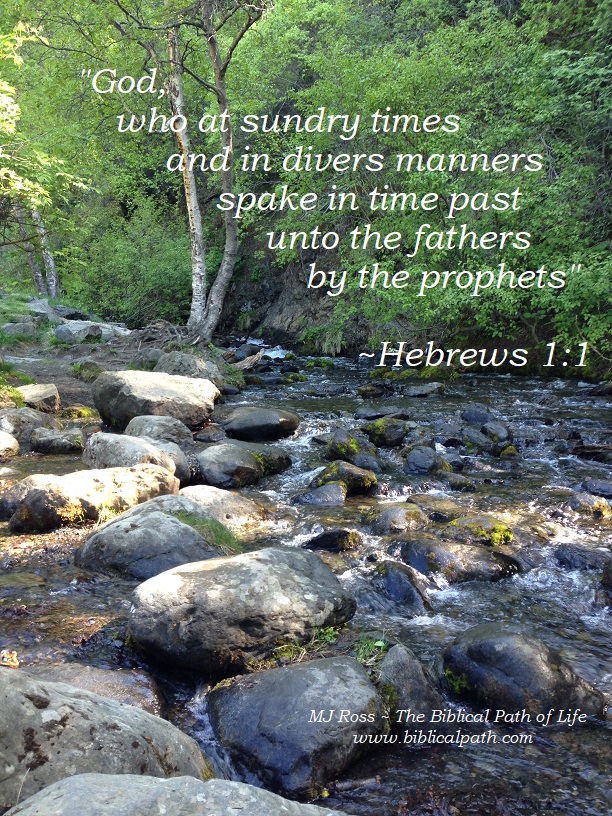
Joel 1:15
The book of Joel tells of the Day of the Lord (see Joel 2:1-3). Many believe that this book is the key to understanding much of prophecy concerning the coming day mentioned by Jesus to His disciples before He left them on earth (see Matthew 24). A day that has not yet come.
Consider, however, that there was also an immediate prophecy that was fulfilled. It is described in the book of Joel as a plague of locusts. “That which the palmerworm hath left hath the locust eaten; and that which the locust hath left hath the cankerworm eaten; and that which the cankerworm hath left hath the caterpiller eaten” (Joel 1:4). Joel is warning of impending destruction by an enemy nation if they do not repent and turn back to God. He explains that there will be four invasions that will completely destroy. The warning is given to the nation of Judah, the Southern Kingdom.
Israel is the kingdom to the north. They never had a good king. They never walked with God. God sent prophets to warn them, yet they did not seek after God. God allowed the enemy to come against Israel. Take note of the four progressive invasions, each becoming worse than the one before it. The first three are against Israel, ending with the destruction of the kingdom and the carrying away into Assyria.
- 1. “19. And Pul the king of Assyria came against the land … 20. And Menahem exacted the money of Israel … to give to the king of Assyria. So the king of Assyria turned back, and stayed not there in the land” (2 Kings 15:19-20). Note the diminishment of the wealth.
- 2. “In the days of Pekah king of Israel came Tiglathpileser king of Assyria, and took … the land … and carried them captive to Assyria” (2 Kings 15:29). Note the diminishment of cities and people.
- 3. “3. Against him came up Shalmaneser king of Assyria; and Hoshea became his servant … 4. And the king of Assyria found conspiracy in Hoshea: … therefore the king of Assyria shut him up, and bound him in prison. 5. Then the king of Assyria came up throughout all the land, and went up to Samaria, and besieged it three years. 6. … the king of Assyria took Samaria, and carried Israel away into Assyria …” (2 Kings 17:3-6). Note the destruction of the nation.
The Northern Kingdom of Israel was no more. They were taken and scattered. Remember the four stages of destruction? Assyria then came up against the Southern Kingdom, Judah. A few good kings had led the people to repent and turn back to God. Judah did at times seek after God. Soon after Israel had been carried away into Assyria, the Assyrians came against Judah. King Hezekiah had just led the people to reaffirm their relationship with God, and there had been a great revival in the land of Judah.
- 4. “And the king of Assyria sent … from Lachish to king Hezekiah with a great host against Jerusalem. And they went up and came to Jerusalem …” (2 Kings 18:17).
When the Assyrians surrounded the city of Jerusalem and sent a letter accusing them of rebellion, the enemy also challenged their trust in God. “Thus shall ye speak to Hezekiah king of Judah, saying, Let not thy God in whom thou trustest deceive thee, saying, Jerusalem shall not be delivered into the hand of the king of Assyria” (2 Kings 19:10). King Hezekiah received the letter (the message from the enemy king). Read what King Hezekiah did. “14. And Hezekiah received the letter of the hand of the messengers, and read it: and Hezekiah went up into the house of the LORD, and spread it before the LORD. 15. And Hezekiah prayed before the LORD…” (2 Kings 19:14-15). God sent encouraging words of deliverance (see 2 Kings 19:32-34).
What did God do for His repentant people, Judah? “35. And it came to pass that night, that the angel of the LORD went out, and smote in the camp of the Assyrians an hundred fourscore and five thousand: and when they arose early in the morning, behold, they were all dead corpses. 36. So Sennacherib king of Assyria departed, and went and returned, and dwelt at Nineveh” (2 Kings 19:35-36). However, when the king of Assyria returned home, he was killed. He was a threat to them no more.
Do you suppose King Hezekiah remembered what David wrote? “18. The LORD is nigh unto all them that call upon him, to all that call upon him in truth. 19. He will fulfil the desire of them that fear him: he also will hear their cry, and will save them. 20. The LORD preserveth all them that love him: but all the wicked will he destroy” (Psalm 145:18-20).
Do you call upon the Lord with a true heart, knowing God preserves all who love Him?
